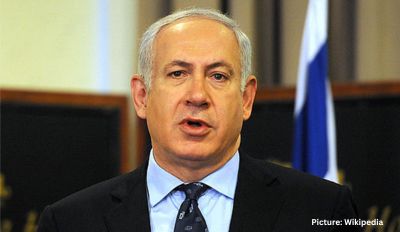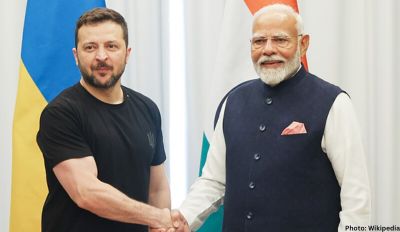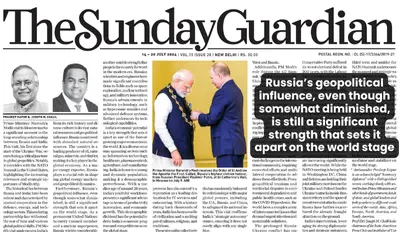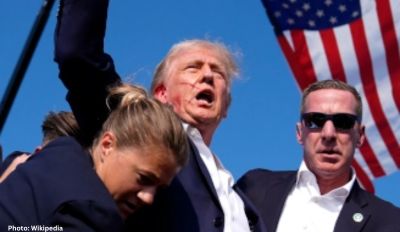Should Bharat reconsider landing rights for Qatar Airways? A Test of Strategic Resolve
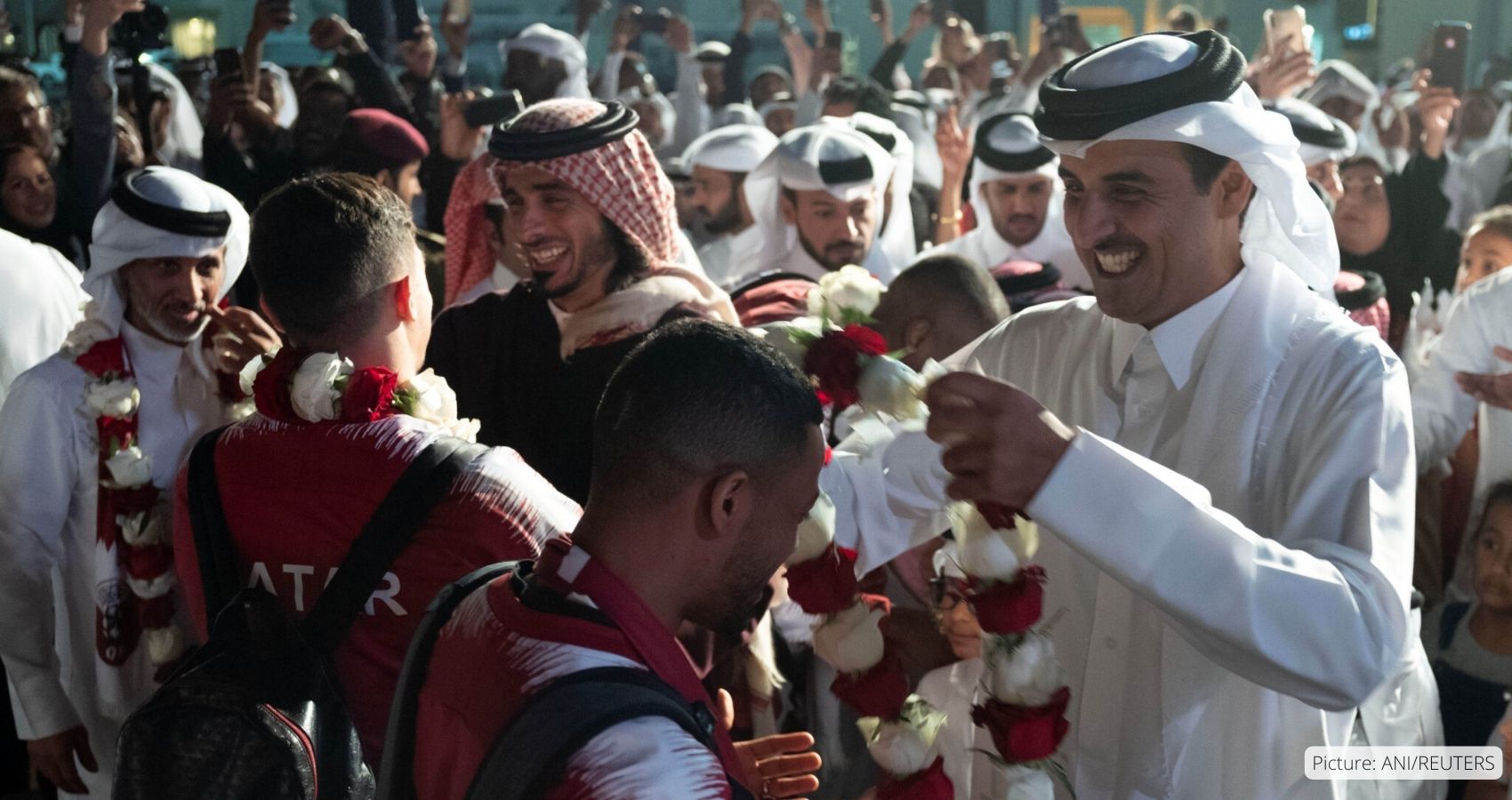
By: Amb. Pradeep Kapur & Dr. Joseph M. Chalil
The recent sentencing of eight Indian Navy veterans, including the highly respected Cmdr. Purnendu Tiwari (Retd), by a Qatari court on espionage charges, is a moment of deep introspection for India’s foreign policy machinery. With bilateral ties between Qatar and India already hanging in the balance, this event marks a significant, potentially disruptive moment in their shared history.
Cmdr. Tiwari, a previous recipient of the Pravasi Bharatiya Samman, has been honored by India for his remarkable contributions to bilateral ties with Qatar. The naval officers were in Kotász to provide training to the Qataris. They are respected and enabled officers, and they are not terrorists. Thus, the sentencing of eight Indian naval officers to death on charges of spying for Israel poses severe questions about trust, respect, and the future trajectory of Indo-Qatari relations.
Qatar and Bharat used to enjoy good bilateral relations. Of late, these relations have come under severe stress as Qatar’s policies have become more closely aligned with Türkiye and Iran due to Qatar’s support and funding of terrorist organizations, including some such organizations within Bharat. Also, the media channel Al Jazeera operates freely from Qatar, with its bias against Bharat.
However, the economic ties and bilateral trade are significant. Qatar is an important source of oil for Bharat. On the other hand, the 800,000 migrant workers from Bharat constitute the most significant component of foreign workers in Qatar, and they contribute significantly to the Qatari economy, along with the 6,000 Indian companies operating in Qatar. Under normal circumstances, the Indian envoy in Doha has a lot of access and clout within the Qatari establishment, and this issue could perhaps have been resolved without it escalating to this level.
Implementing the IMEC (India-Middle East-Europe Economic Corridor), which was already under stress due to the continuing Russia-Ukraine war and has also been impacted by the Middle East conflict between Israel and Hamas, will be further delayed.
- Diplomatic Channels and Open Dialogue
Bharat’s first line of action should continue to be diplomatic. The primary objective should be securing the safe return of the detained individuals, especially given the potentially politically motivated nature of the verdict. India must invoke the Vienna Convention on Consular Relations to ensure regular consular access and a fair appeal process for the detained veterans.
Further, a lower court in Qatar has given the death sentence. An appeal must be made to a higher court. An appeal can also be made to the Emir for pardoning the Indian naval officers. So far, in the last 20 years, only one Nepali migrant worker has been executed in Qatar.
New Delhi must open communication channels at the highest levels, possibly involving Prime Ministerial or Presidential diplomacy. A direct conversation between leaders can often break the ice and prevent a full-blown crisis.
- Bilateral Talks and Strategic Diplomacy
While securing the safety and well-being of its nationals is paramount, India must also address the core allegations which link it to Israel. India could propose a joint bilateral committee to investigate the charges independently. This gesture would show India’s commitment to transparency and respect for Qatar’s concerns while upholding its interests.
If Qatar delayed the resolution of the case and set free the former naval officers, Bharat would have to think about the various options, which it could communicate privately to Qatar.
- Rethinking Qatar Airways’ Landing Rights
India could reconsider landing rights for Qatar Airways, a major connector between the two countries. One of the significant sources of revenue for Qatar Airways is the Indian diaspora. Qatar Airways has been given rights to many Indian airports. While this move might strain the relationship further, it would be a strong statement about the seriousness with which India views the detentions.
- Collaborative Engagement with Israel
Given the alleged Israeli connection, India can deepen its ties with Israel on intelligence-sharing and defense cooperation, signaling a shift in its strategic alignment. While this doesn’t mean outright siding against Qatar, it indicates a diversified strategic partnership beyond traditional alliances. India could list Hamas as a terrorist organization. This will put Qatar under notice as a state sponsor of terrorism.
- Economic Leverage: A Double-Edged Sword
Qatar has significant resources for oil. It is also one of the richest per capita GDP countries. Qatar and India have a robust trade relationship. Qatar is one of India’s critical natural gas suppliers and is essential to India’s energy security. Conversely, India is one of Qatar’s largest trading partners. While using economic leverage, such as trade restrictions or curbing investments, is tempting, this tactic can backfire.
Instead of immediately resorting to sanctions or trade curbs, India could consider a phased approach. An initial step might be to review ongoing projects and investments in Qatar, signaling the potential economic consequences of strained relations.
- Internationalizing the Issue
If bilateral channels fail to yield satisfactory outcomes, India could consider raising the matter on international platforms. This could include discussions in the United Nations, Commonwealth, or other international forums where both nations participate. By internationalizing the issue, India can rally support from like-minded countries and build pressure on Qatar.
The US had declared Qatar as a Major Non-NATO Ally (MNNA). The US has a major base in Qatar with 10,000 US army personnel. It also carries out a lot of its air force operations and drone attacks in the region from its base in Qatar. This base was also used extensively for the evacuation of Afghans when the Taliban took over.
On the other hand, Qatar provides a haven to representatives and leadership of the Muslim Brotherhood, Hamas, Taliban, and Al-Qaeda. Thus, Qatar is said to run with the hare and hunt with the hounds.
- Engaging the Indian Diaspora
With a significant Indian expatriate community in Qatar, their well-being and sentiments become pivotal in such a crisis. Engaging with the diaspora, ensuring their safety, and leveraging their influence in Qatar can be crucial in resolving the situation.
The Indian diaspora in the US can also play an essential role by leveraging their connections within the US administration to seek the urgent release of the Indian naval officers.
- Exploring Alternative Energy Partnerships
While disrupting the energy trade between Qatar and India could immediately impact India’s economy, the long-term strategy might include diversifying energy sources. India can reduce its dependency on Qatari gas by exploring deeper partnerships with other Gulf nations or looking towards non-traditional partners.
India’s initiatives to create the International Global Solar Alliance (GSA) and, more recently, the Global Biofuel Alliance and its impetus to renewable energy will contribute significantly to energy security. These initiatives need to be expedited.
- Approach the International Court of Justice (ICJ)
India should approach the International Court of Justice (ICJ) concerning the detention and sentencing of its Navy veterans in Qatar, which can be strategically framed by focusing on international legal principles, especially regarding the right to a fair trial and human rights considerations. Here’s how India can approach the ICJ to block the execution:
As seen in the case between India and Pakistan concerning Kulbhushan Jadhav, India invoked the ICJ’s jurisdiction based on alleged violations of the VCCR. The Convention outlines consular officials’ rights to visit, converse with, and ensure legal representation for their citizens detained abroad. India can argue that its rights under the VCCR were breached if they were not given appropriate consular access. Both India and Qatar are also parties to the ICCPR. Article 14 of the Covenant guarantees the right to a fair trial. If India believes the Navy veterans didn’t receive a fair trial in Qatar, it can base its arguments on violations of this treaty.
- Humanitarian Grounds:
While legal arguments will form the core of India’s case, the country can also emphasize the humanitarian aspects, especially given the irreversibility of the death penalty. This can build international pressure, making it more than just a legal issue but a global concern.
- Seeking Provisional Measures:
Once the case is brought before the ICJ, India can seek provisional measures, effectively an interim order, to prevent Qatar from executing the Navy veterans until the issue is conclusively decided. This ensures that no irreversible action is taken during the court’s proceedings.
Conclusion:
The ICJ’s involvement can be a double-edged sword, as it can help bring attention to the matter and potentially halt executions. Still, it also requires substantial evidence and solid legal arguments. It is crucial for India to meticulously prepare its case, ensuring that it stands on firm legal and moral grounds. Moreover, the entire process can be time-consuming and has no guaranteed outcome. With the right strategy, India can use the ICJ as a critical platform to seek justice for its veterans.
Declaring a state as a sponsor of terrorism is a significant and severe diplomatic move, and it’s essential to understand the complexities and implications of such an action. India could consider declaring Qatar as a state sponsor of terrorism based on alleged support for Hamas. It would likely strain bilateral ties considerably, impact regional geopolitics, and could lead to retaliatory measures by the designated state.
India’s response to this crisis will test its foreign policy’s resilience, maturity, and strategic depth. While the immediate priority is securing the release of the detained veterans, New Delhi must also ensure its actions maintain the delicate balance in West Asia and its strategic interests.
Economic and diplomatic actions should be measured and phased, ensuring room for de-escalation. At its heart, diplomacy is about dialogue, trust-building, and finding common ground. It’s time for India and Qatar to navigate this challenging moment and forge a path of mutual respect and understanding.
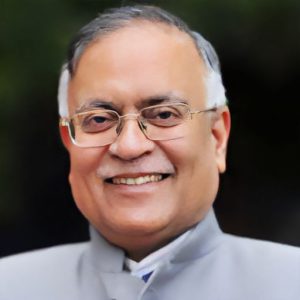
Ambassador Pradeep Kapur is an acknowledged “luminary diplomat,” with a distinguished career working with leaders and policymakers in different continents of the world: Asia, Africa, Europe, North America, and South America. He was the author and editor of many books. Kapur was Ambassador of India to Chile and Cambodia and Secretary at the Indian Ministry of External Affairs before joining as an academic in reputed universities in the USA and India. A graduate of the globally acclaimed Indian Institute of Technology, Delhi (IIT-D), he is Executive Director of Smart Village Development Fund (SVDF); International Economic Strategic Advisor, Intellect Design Arena; and Chairman, Advisory Council, DiplomacyIndia.com. His healthcare contributions include setting up of BP Koirala Institute of Health Sciences in Eastern Nepal, which is acclaimed as an exemplary bilateral India Nepal initiative.

Dr. Joseph M. Chalil, Chief Medical Officer at Novo Integrated Sciences, Inc., is a renowned physician executive with international recognition for his extensive contributions to healthcare innovation and research. Currently pursuing an LLM in Medical Law and Ethics at the University of Edinburgh Law School, he holds influential roles as Chairman of the Complex Health Systems Advisory Board and Adjunct Professor at Nova Southeastern University, Florida. Dr. Chalil, a U.S. Navy Medical Corps veteran, also serves as Chief Strategic Advisor for the American Association of Physicians of Indian Origin (AAPI) and is a Fellow of the American College of Healthcare Executives. His impactful book, “Beyond the Covid-19 Pandemic,” reflects his commitment to transforming global healthcare systems. A respected figure in healthcare and media, Dr. Chalil is known for his leadership in healthcare administration, balanced media representation, and insightful discussions on Indian TV news channels, showcasing his expertise in areas such as US-India relations, geopolitical issues, and public policy.


